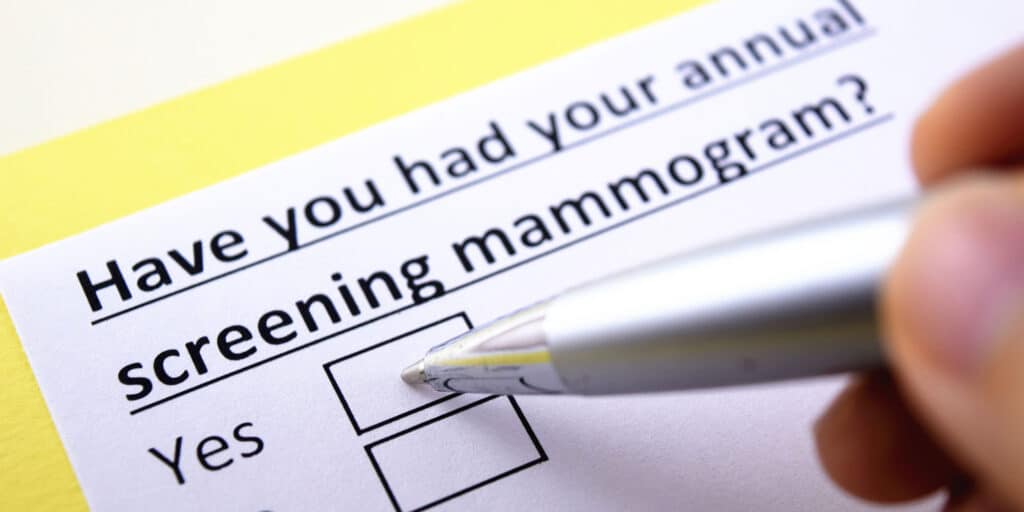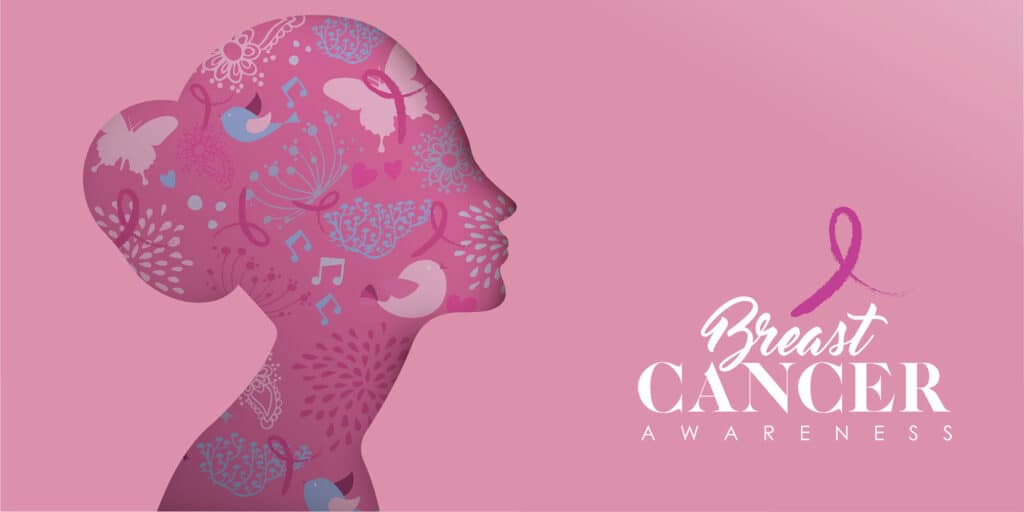As if the emotional distress from living with cancer isn’t hard enough, patients (and survivors) also have to find relief from their physical pain. In honor of October being Breast Cancer Awareness Month, it’s important to explore effective breast cancer pain management research and techniques.
First, let’s put the topic of breast cancer in perspective by taking a quick look at statistics from BreastCancer.org:
Did you know that…
- …about 1 in 8 U.S. women (about 13%) will develop invasive breast cancer over the course of her lifetime.
- …in 2021, an estimated 281,550 new cases of invasive breast cancer are expected to be diagnosed in women in the U.S., along with 49,290 new cases of non-invasive (in situ) breast cancer.
- …as of January 2021, there are more than 3.8 million women with a history of breast cancer in the U.S. This includes women currently being treated and women who have finished treatment.
Once we all realize the staggering numbers associated with breast cancer, we have a more thorough understanding of the extent to which it impacts our world today. According to Cancer Treatment Centers of America, managing pain is “particularly important for cancer patients, considering one in three patients continues to experience pain after treatment.” If you apply that ratio to the 3.1 million women are currently being treated or have been treated, this means millions of women are in some degree of pain at this very moment.
For many women diagnosed with breast cancer, the lump itself does not cause pain, but the subsequent treatments to remove it causes lots of pain and discomfort. For other women, especially if they have a more advanced stage of cancer or if the lump puts pressure on a nerve, tissue, organs or bones, or the lump has metastasized, it can be excruciating.
Luckily for breast cancer patients, there are a variety of successful pain management programs beyond prescription medication. From holistic therapies like biofeedback, massage and relaxation techniques to more targeted pain relief options like implanted pain pumps and nerve block therapies, there are options that have proven to be effective in providing relief.
The key to a successful breast cancer pain management plan is early intervention. If you’ve ever had to take pain medication after surgery, you know what happens if you miss a dose. It’s nearly impossible to stay ahead of the pain after you fall behind it. Breast cancer pain management plans work similarly because the faster you can address your pain, the better your chances are of managing it before it worsens.
Remember: your main goal during and after breast cancer treatment is to allow your body to heal. Your long-term objective is survival, and that requires proper healing.
“Pain is very common, even in the early stages of the disease,”
So how do you heal in the midst of pain?
Describe your pain to your healthcare team
 “Pain is very common, even in the early stages of the disease,” notes Salahadin Abdi, M.D., Ph.D. “As cancer progresses, the pain associated with the cancer itself or the treatment becomes more significant. That’s why it’s important to notify your care team early on to ensure a better quality of life.”
“Pain is very common, even in the early stages of the disease,” notes Salahadin Abdi, M.D., Ph.D. “As cancer progresses, the pain associated with the cancer itself or the treatment becomes more significant. That’s why it’s important to notify your care team early on to ensure a better quality of life.”
Speak up loudly and as often as needed so that you can your healthcare team can respond appropriately.
“I like when patient and the caregivers come to see me together so that everyone’s on the same page, everyone is educated and understands cancer pain,”
Discuss your pain with your family or caregivers
Patients are not alone in their emotional pain. The struggle to fight the disease and establish effective breast cancer pain management tactics is a struggle that loved ones help patients fight. While the big picture goal is to emerge strong, the journey through treatment requires a support network. Abdi explains that cancer patients feel as though people don’t believe their pain exists and that can make them feel isolated. “I like when patient and the caregivers come to see me together so that everyone’s on the same page, everyone is educated and understands cancer pain,” he says.
Remember: medical advances are being made to treat breast cancer with less invasive therapy, and that means less pain. According to an interview with Christopher Friese, the Elizabeth Tone Hosmer Professor at the University of Michigan School of Nursing and a researcher at U-M’s Rogel Cancer Center, “We have marveled at the number of cancer treatments that are newly available for many cancers. What may be underlooked is the recent work to help identify which patients don’t need aggressive treatments.”
Friese goes on to cite a June 2018 study that showed by testing breast cancer tissue for a number of genes associated with riskier cancer, chemotherapy can be skipped safely for a large number of women at average risk, who can instead take endocrine therapy, which is a pill and has fewer side effects. Friese calls this “an early win for the precision health movement.”
Let’s look at a few important tips about breast cancer pain management:

- Pain management is important throughout your fight. Don’t hesitate letting your healthcare team know about pain you may have.
- Focus on healing, not on projecting the image you are strong and can take the pain. There are management and relief options for you.
- There will likely be some pain after breast cancer surgery, but it may be temporary. If it’s due to injuries to the skin or your muscles, you may be able to treat it with mild pain relievers.
- Talk to your healthcare team about possible OTC medications and if/when you should take them. They want you to wait or prescribe something stronger depending on your individual circumstances.
- Talk to your healthcare team about non-drug methods of easing pain. These can include physical therapy, acupuncture, relaxation techniques, massage therapy, hot and cold therapy, yoga and guided imagery.
What breast cancer pain management tips would you like to share with others fighting this disease?
Let us know in the comments section!
Have a topic related to breast cancer you’d like to see us research and discuss?
Let us know by emailing us at info@painresource.com.
Are you a member of our Chronic Pain Community?

